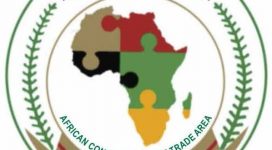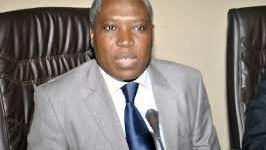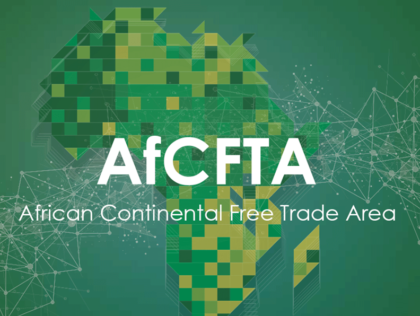One of Africa’s flagship initiatives for integration, the Africa Continental Free Trade Area (AfCFTA), recently signed faces challenges at the Regional Economic Communities (RECs) level, especially in the Economic Community of West African States (ECOWAS) writes *Sylvester Bagooro
Hardly had the ink dried on Africa’s Continental Free Trade Area agreement signed by 44countries on March 21 in Kigali, Rwanda than the challenges confronting it raised their brows.
These challenges centre chiefly on the harmonization of regional offers as a customs union, policy incoherence with other trade frameworks such as the Economic Partnership Agreements (EPAs), insufficient involvement of key actors at the national and regional levels. All these are compounded by the very ambitious speed of the negotiations of the AfCFTA. These could pose enormous challenges to the operationalization of the trade pact especially within ECOWAS unless they are sufficiently and radically addressed.
The challenges came up during the ECOWAS Trade Experts and Trade Ministers Meeting held in Abuja, Nigeria, from the 21-24th May 2018 as well as during an Africa-wide Multi-stakeholder forum in Accra convened by Third World Network-Africa from the 12-14th June 2018. Some of the challenges are not new as they have been flagged by many stakeholders in previous forums by private sector players, civil society and some government officials. Though there is agreement that the AfCFTA is an opportunity to address Africa’s longstanding
development challenges they hold the view that it should emerge from a broad consultative approach which will give it much more legitimacy and ownership by stakeholders across the continent. Ultimately, if handled well the trade pact may also repair the damage caused by external trade agreements to the development policy space and instruments on the African continent. A common market, a single currency buoyed by free movement of people and goods are the ingredients of Africa’s integration agenda and the Africa Continental Free Trade Area is one of its pillars.
The African Union Assembly had launched the AfCFTA negotiations during the 25th Ordinary Summit of Heads of State and Governments on June 15, 2015 in Johannesburg, South Africa. On 21st March 2018, forty-four Heads of State signed the Frame-work Agreement on the AfCFTA as well as the Protocol on Trade in Goods and Protocol on Trade in Services.
With focus on ECOWAS, the Regional Trade Ministers meeting discussed a range of issues including the AfCFTA, the uneven development in the region regarding the Economic Partnership Agreement (EPA) with the European Union, a Common Trade Policy for the region as well as challenges of the Common External Tariffs (CET) as the region moves fully towards a Customs Union.
On the challenges, first, was the issue of harmonizing the offers of individual member states into a regional offer informed by broad consultation at both the national and regional levels within the tight schedules of negotiations. From the onset of the negotiations on the AfCFTA, member states within ECOWAS should have approached the negotiations as a regional bloc as befits a Customs Union which had begun the implementation of its Common External Tariffs (CET) since 2015. But that was not the case. So, during the ECOWAS ministers’ meeting, the Ministers urged the ECOWAS Commission to elevate its participation in the meetings and also adopt a regional approach to the liberalisation demands of the AfCFTA. (90 percent of the goods would be liberalised with 10 per cent for sensitive and excluded products as well as the services commitments). Hence ECOWAS member states emphasized during the meeting that to preserve the effectiveness of the Free Trade Area between the countries of the African continent, a regional compromise must be reached for the Community as an offer that preserves the cohesion of the region.
However, the roadmap at achieving the regional offer poses a challenge rather than a concrete solution. The meeting recommended that the ECOWAS Commission work out a regional of-fer and that should be circulated to all ECOWAS Member States for comments latest May 31, 2018. Following which member states should hold national consultations with different stakeholders; customs departments; trade ministries; private sector and civil society and the outcomes transmitted to the ECOWAS Commission no later than 15 June 2018. A regional meeting would then be convened to agree on the Draft Offer that will then serve as a basis for the negotiations on market access by 05 July 2018. (As I write this article in July, Ghana as a country, has not held any known nation-al consultation based on the demands of the Trade Ministers meeting. The situation is likely to be same in other ECOWAS member states).
Related to the above is the development in Nigeria regarding the AfCFTA, where President Mohammed Buhari, put off the signing of the trade pact based on concerns raised by local stakeholders. In fact, Nigeria’s situation is a classic manifestation of the defective processes of the AfCFTA. Nigeria had to pause to consult other stakeholders such as the Manufacturers Association of Nigeria, trades unions among others before the President could append his signature to the trade agreement.
“In trying to guarantee employment, goods and services in our country, we have to be careful with agreements that will compete, maybe successfully, against our upcoming industries,” Buhari told a news conference during a visit by South African President Cyril Ramaphosa.
Continuing, President Buhari said, ‘“We are a vast nation of nearly 200 million people, with diversity of language, culture, natural endowments and aspirations. However, what we all have in common is that at all levels, Nigeria is a trading nation.
“No nation can survive on its own. Trading is important and the terms of trade are important. Therefore, there is a need to ensure our national interests as well as our regional and international obligations are balanced.”
Even with the consultation by the Nigeria Office for Trade Negotiation (NOTN), concerns for the defective process continue to reverberate. As reported in oraclenews.org, on July 4, 2018, the Manufacturers Association of Nigeria (MAN) stated that the outcome of the consultation by the Office for Trade Negotiation has even left them more worried than before. According to MAN’s President, Dr Frank Jacobs, “we are now even more worried that, in spite of the widespread concerns that necessitated Mr. President’s reservation of his signature at the summit in Kigali, the subsequent activities of the NOTN were not tailored towards addressing those concerns. Rather than squarely addressing those critical issues, all efforts were geared towards extolling the laudable objectives of the AfCFTA, its potential benefits and what Nigeria is expected to benefit from its implementation.”
Another sticky issue is the ECOWAS Community levy and the demands by Article 7 of the Protocol on Trade in Goods to abolish such levies on goods from other African countries. Currently ECOWAS imposes 0.5 percent import duty on goods originating from third parties. The Levy is the core financial instrument on which the Community relies to deepen regional integration through the functioning of Community institutions and implementation of regional integration activities. This was instituted after unsuccessful attempts to mobilise resources through other instruments. The Community Levy provides a predictable and autonomous source of financing which has led to significant achievements in the region. However, its application could be in conflict with Article 7 of Protocols on Goods unless pro-vision is made in the AfCFTA agreement for its stay. The article states that ‘State Parties shall progressively eliminate im-port duties or charges having equivalent effect on goods originating from the territory of any other State Party in accordance with their Schedules of Tariff Concessions…’.
So, at the ECOWAS meeting, some member states called for its application to be limited only to countries outside Africa. This was informed by a study conducted by the African Development Bank (AfDB)on the fiscal implications of eliminating the Community levy that suggests that there will be “no life threatening” effects to the region if the levy were abolished since income from the rest of Africa through the levy is estimated at only 4 per cent. That notwithstanding many other stakeholders disagreed on the basis that analysis by the AfDB omitted two critical effects-a) the possibility of trade creation in Africa that may lead to increased importation from Africa and reduction of imports from Europe and Asia; and (b) the possibility of Asian and European firms relocating to Africa to take advantage of the liberalised continental market.
Following discussions and debates at the experts’ level the Ministers recommended that ECOWAS should take ad-vantage of Article 19 of AfCFTA and the discussion of the financing modalities of AfCFTA to make a case for the need to continue the operation of the ECOWAS Community Levy pending the time that alternative modalities can be secured.
In furtherance of this, ECOWAS should negotiate for the introduction into the text for the continuation of the ECOWAS Community Levy until an equally effective alternative financing method has been set up by the Region. The challenge would be whether ECOWAS would succeed with its demands in the broader membership of other African states who are party to the AfCFTA.
Also threats to ECOWAS integration agenda as a Customs Union and AfCFTA came up. Key among them is EPA agreements between some members of ECOWAS and the European Union. Currently, ECOWAS has no regional agreement on the EPAs with the European union. However, Ghana and Cote d’Ivoire have separate agreements with the EU and the implementation of these agreements would derail the integration agenda as a Customs Union. This could lead to the suspension of the application of the ECOWAS CET by these two countries as well as the exclusion of Côte d’Ivoire and Ghana from the benefits of the ECOWAS Trade Liberalization Scheme (ETLS) and the possible restoration of customs barriers and tariffs by the other Member States.
In the light of these challenges posed by the EPAs, some stakeholders have called for the renegotiation of the EPAs in the context of the Brexit which is enough justification since the political development within the EU has de-valued whatever value the EPA offered at the time these two countries signed. Some member states also appealed to the EU to show flexibility.
Lastly, the speed of the negotiations has profound implication on the quality of consultation and the eventual outcome of the AfCFTA. Hence, the Africa-wide Multi-stakeholder consultation in Accra, which brought together government officials, trade unions, policy institutions, and parliamentarians recommended, among other things, a pause in the pace of the AfCFTA agenda for stock-taking. According to conclusions drawn from the meeting, the fast-paced negotiations have already led to a number of hasty decisions and incoherencies. The meeting thus called on members states to, before the next stages, pause to take stock and assess the actual measures in place in Africa at the national, regional and continental levels for the AfCFTA to be meaningful for Africa’s structural economic transformation.
The tight schedule at the regional levels are due to the schedules of the continental processes. At the 6th Meeting of African Union Ministers of Trade (AMOT) which ended in Dakar, Senegal, on 4th June, the Ministers called for analytical work to inform the preparation of Schedules of Tariff Concessions for Trade in Goods and to make them available to member states no later than end June 2018. This is to be followed by the preparation of templates for Schedules of Tariff Concessions for Trade in Goods and Schedules of Specific Commitments on Trade in Services by the end of July 2018.
Also, the meeting of the 12th AfCFTA negotiation forum was tentatively scheduled to be held in September and it is expected to approve the templates for the operationalization of the AfCFTA. The Schedules of Tariff Concessions for Trade in Goods and Schedules of Specific Commitments on Trade in Services will be submitted to the January 2019
Session of the AU Assembly of Heads of State and Government for adoption. This makes it difficult for broad consultation with all stakeholders at both the regional and the national level. African Union officials said countries that have signed the agreement will need to submit a schedule of tariffs by December, adding that they expect intra African trade to double over the next four years once tariffs are reduced.
Some analysts argue that Africa’s low level of intraregional trade is one of the reasons for Africa’s enduring poverty and lack of a strong manufacturing base and therefore see AfCFTA as one of the planks in changing the situation. Whilst this may be true if the AfCFTA, has to be meaningful and impactful, it must not be rushed else its implementation may be problematic.
-
Sylvester Bagooro is Programme Officer, Political Economy, Third World Net-work-Africa.



